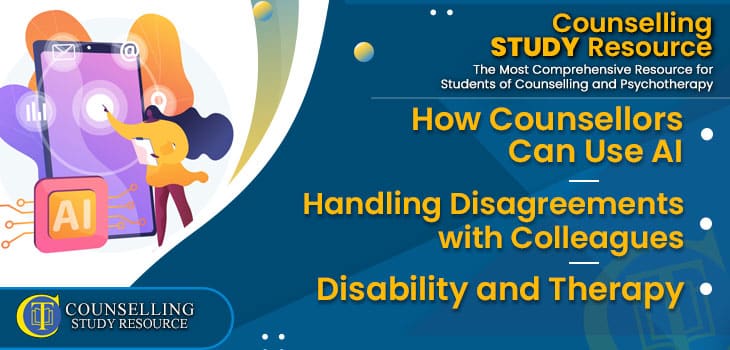See Counselling Skills Used in Real Sessions by Qualified Therapist
Real Sessions – Real Presentations – Real Skills
Gain the competence and confidence to use counselling techniques effectively!

In Episode 271 of the Counselling Tutor Podcast, your hosts Rory Lees-Oakes and Ken Kelly offer a warm welcome back after the academic break. With the start of the new academic year, we also have two new sections in the podcast:
Disagreements with Colleagues
With the rising use of AI, it is clear it’s not something that’s going away anytime soon – what’s important is knowing how counsellors can use AI ethically and productively.
The key points of this section include:

Real Sessions – Real Presentations – Real Skills
Gain the competence and confidence to use counselling techniques effectively!
Within counselling, it can be very helpful to have critical friends, an outside look at how you conduct your practice. However, this can sometimes lead to disagreements among colleagues that won’t be in your clients best interest.
Some of the main points of this section are:

On-demand access to a rich lecture library covering theory, skills, and professional development for counselling students—Mapped to the UK awarding body criteria
“The Student Library has been BRILLIANT, I can’t recommend it enough!
It has been a lifeline in helping me prepare for practice and my first clients. If you’re considering it, go-for-it, it’s absolutely worth it!”
Kelly – Graduated and now in practice.
In this week’s ‘Practice Matters’, Rory speaks with Melanie Halacre from Spokz People about disability in therapy.
The key points of his discussion include:
Disagreements with Colleagues

Get on-demand Certified CPD that is implementable in your practice
